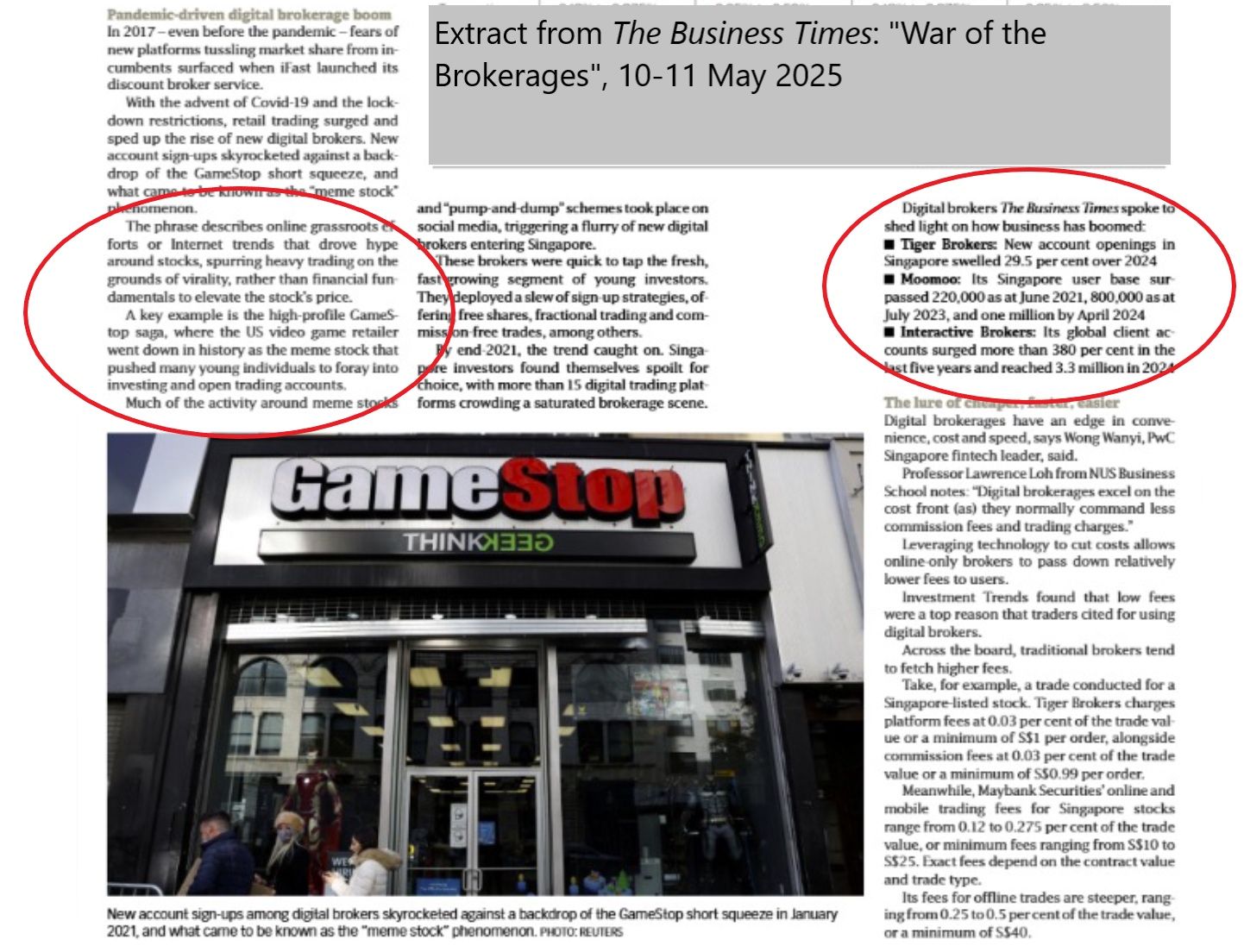Note: It was announced in November 2023 that MoneyOwl will be acquired by Temasek Trust to serve communities under a re-purposed model, and will move away from direct sale of financial products. The article is retained with original information relevant as at the date of the article only, and any mention of products or promotions is retained for reference purposes only.
______________
Should you change your financial plans because of the fear in a potential market downfall?
The COVID-19 situation has riled people and businesses, and it seems that yesterday, global stock markets finally showed their fears, with the growing spread of the virus across countries, increased deaths and large clusters in Europe, and fears in the US. The US indices fell more than 3%, the Dow Jones was down more than a psychological 1,000 points, with gold and government bonds rising. The Singapore dollar has taken a beating over the past week as well.
Just yesterday, MoneyOwl launched its comprehensive financial planning service, waiving fees for a start. How does a financial plan come in at a time when markets are plunging and there is so much uncertainty?
Should you defer planning? The answer is that it is exactly at this time that you can benefit from the stability of a comprehensive plan, based not on short-term winds of fear, but on tried and tested principles, to lay out the plan for your life goals.
I say this because, in a situation like today, there are a few things to remember, firstly about markets, and secondly about how they affect you – your wealth accumulation, your desired retirement, your current lifestyle, and your overall life goals.
The fear in the market is the potential economic impact from decreased consumption, trade, supply chain disruptions, and the resultant hit of all of this on company earnings. There are a few typical investor responses to this fear. The first is to sell all stocks and move to cash or bonds or buy some of the types of instruments you think should benefit, like gold, i.e., change your asset allocation. The second is to try to pick the individual companies that might benefit from this and buy those while selling others that would logically suffer more. The third is to bottom fish and look for those stocks that have gone down a lot and buy them. Or some combination of all of the above.
There are a few problems with these approaches:
- Markets are efficient. They priced in all the participants’ feelings, the likelihood of whether central banks will move, the economic impact, very quickly.
- This short-term game on market timing and stock picking is played primarily by the big players, the pension funds, the insurance companies, and asset managers. They have first gone, not you, always.
- But even the professionals almost always get it wrong – either changing asset allocation in the short term, differentially picking stocks, or bottom-fishing – especially over the long run. In any one year, at most 20% of fund managers manage to beat the market, and over a 5-year period, even those who beat the market do not manage to do so consistently; they don’t stay at the top of the class. One study shows that only 1 out of more than 500 fund managers stay in the top quartile over a 5- year period.
- A market goes through a major crisis but markets always recover and go up in the long run. This is because, in the long run, global aggregate demand rises, because of the global population and standards of living in aggregate increase.
What does this mean? It means that if you try to move in and out of markets because of fear, you will likely get whipsawed.
Also, you will jeopardise your ability to capture the return of the market you are invested in when it recovers.
Who knows what will move next – and when? A massive government stimulus or a huge monetary easing? And if it moves, you won’t be the first to get it and you might end up having sold low and buying high. Or, and this might be worse, you never know when to get back in because that’s the way human psychology is.
Some of the biggest recoveries occur after the biggest plunges. Think 2009. So just based on how markets work, the argument is already there for you to stay invested.
But how do these markets affect you and your life goals, for which you are planning?
In a nutshell, you need to recognise that all these market movements are short-term fluctuations that should not affect your long-term plans which are there to support your life goals.
Warren Buffett was quoted as saying that the virus is bad for humans, but it shouldn’t change what you do with stocks. If I could paraphrase, from a financial planning standpoint, it should not change what you do on the journey to reach your life goals. Every one of our investing clients has a time horizon that is longer than that represented by the timeframe of worry and fluctuation you need to worry about.
I keep saying life goals and not financial goals because investments and money are means to an end.
There is no need to feel the compulsion to maximise your returns in every short-term period by trying to exercise some control of your experience of what is happening over the market – you are very unlikely to succeed for the reasons stated above.
What the COVID-19 situation does tell us, however, is to adjust your personal financial equation and even your own daily living habits in the short term:
- Be careful of taking on debt, have an emergency fund of at least 6 months (those of you receiving bonuses these two months might wish to take note);
- Spend less and take care of your physical health alongside your financial health.
But you need not fear because the evidence about the market is that this will pass and recover. In fact, if you miss out on the recovery, even for just a while, your long-term returns will suffer and the life goals that you wanted to use these returns to support, will be diminished.
For our comprehensive planning clients who have gone through the face-to-face planning with our advisers (either in person or by teleconference), your comprehensive plans have addressed your financial health, the protection you need to have in place (including in the case of a medical crisis), your options to accumulate towards retirement using a combination of CPF (which benefits for you are not affected by the COVID-19 situation) and investment into a suitable, globally diversified portfolio according to your need, ability and willingness to take the risk – a portfolio that is built with funds based on Nobel prize-winning thought that understands how markets work and do not time markets, and which has already taken into account all of these fluctuations that can happen in its projections.
Only a change in your life situation or life goals should change your financial plan. The markets should not. If anything, should the markets go down further if you have dry powder, our Client Adviser may reach out to you to ask you to take more action to give your plan a booster on the fringe – but this is provided that your main plan is already in place. This is something that we can discuss mainly with our comprehensive planning clients because investments are always treated in a holistic manner in a good plan.
So, in this time of uncertainty, let your plan remind you of the longer-term path that has been charted for you in your plan which safeguards your future despite the ups and downs. It is also in this time that your MoneyOwl Client Adviser, not being a robot but a proper, qualified, and fully salaried adviser looking after your interests, is ready to answer your questions so that you can continue on your path to reach your life goals and take all these happenings in your stride, no matter what they are, and be confident and comfortable in the journey. Do give your MoneyOwl Client Adviser a call or drop us an email or Facebook message.
Keep well!
MoneyOwl is an NTUC Social Enterprise and a Joint Venture between NTUC Enterprise and Providend. We are Singapore’s 1st bionic financial adviser, delivering advice through fully-salaried, non-commissioned advisers augmented by an ISO27001-certified technology platform. We provide comprehensive financial planning services that fully integrate national schemes such as CPF, as well as insurance and investment advisory services, and an online will writing service. To find out more, please visit www.moneyowl.com.sg
Disclaimer: While every reasonable care is taken to ensure the accuracy of information provided, no responsibility can be accepted for any loss or inconvenience caused by any error or omission. The ideas, suggestions, general principles, examples and other information presented here are for reference and educational purposes only, and are not meant to be a substitute for professional investment advice. The information and opinions expressed herein are made in good faith and are based on sources believed to be reliable but no representation or warranty, express or implied, is made as to their accuracy, completeness or correctness. Expressions of opinions or estimates should neither be relied upon nor used in any way as indication of the future performance of any financial products, as prices of assets and currencies may go down as well as up and past performance should not be taken as indication of future performance.
The author and publisher shall have no liability for any loss or expense whatsoever relating to investment decisions made by the reader. This article should not be construed as an offer or solicitation for the subscription, purchase or sale of any fund.
Announcement: With effect from 1 June 2022, MoneyOwl is a 100% NTUC Enterprise (NE)-owned company.




